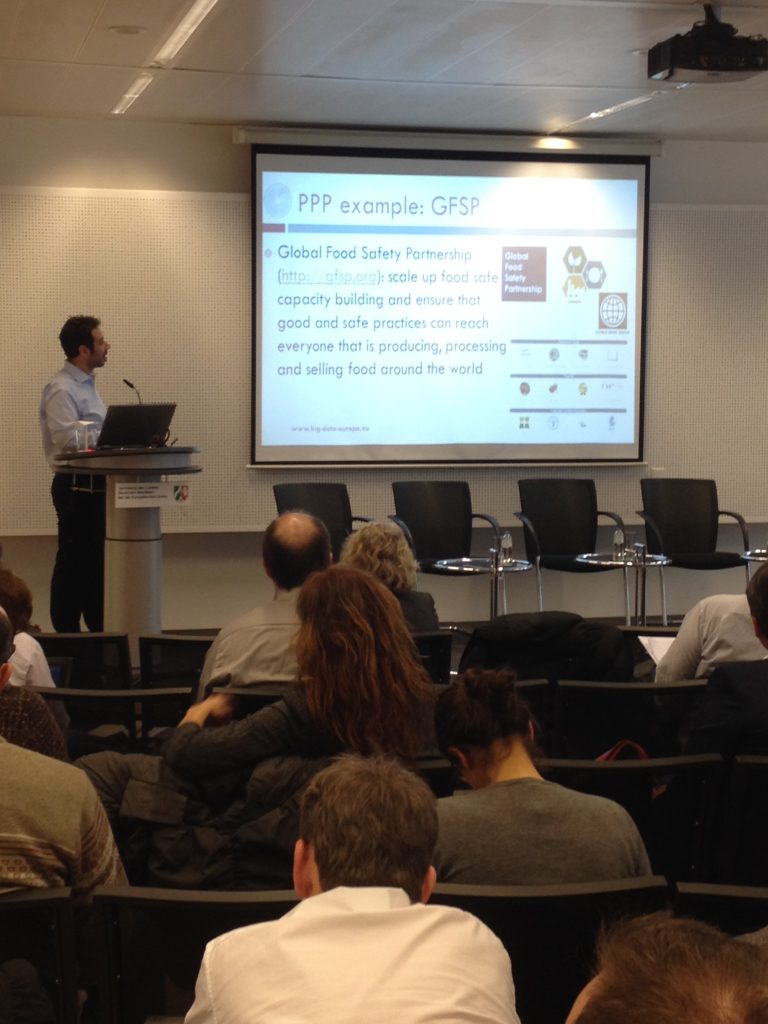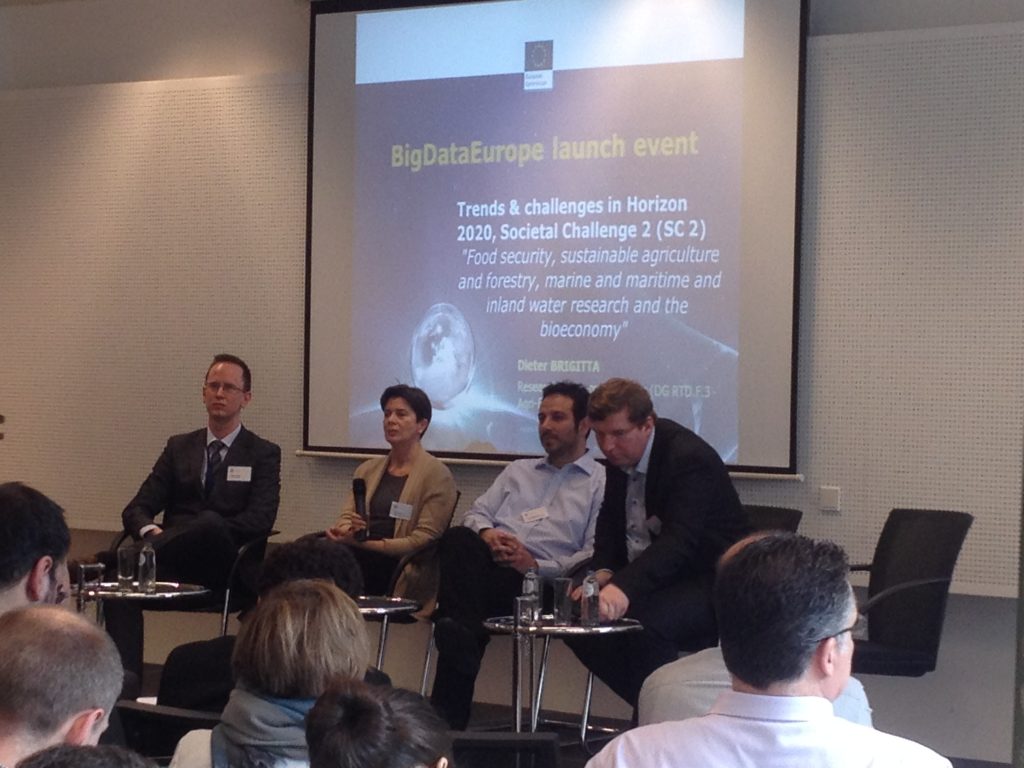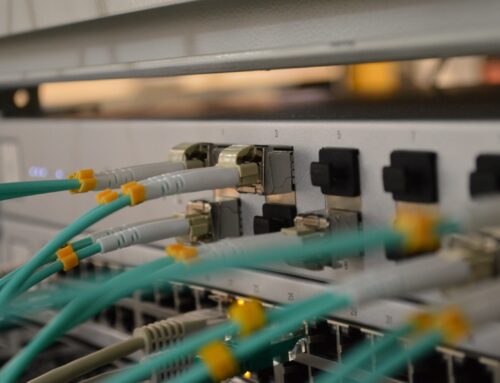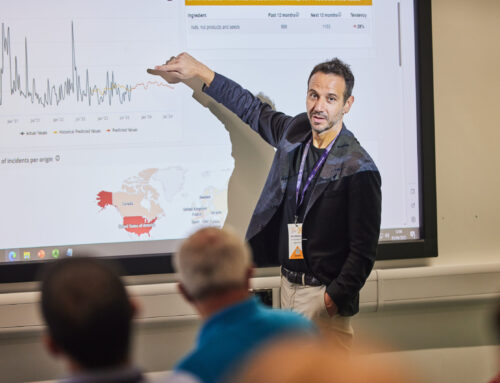Is this the time for big data technologies to be streamlined in Europe? Are we going to see a wave of big data powered tools and applications in different application domains and industry sectors? This is the ambitious goal of the recently launched initiative Big Data Europe and its is a major opportunity (but also challenge) for the agri-food sector as well.
The European Commission decided to bring together some of the best European minds researching and developing big data technologies, and ask them to work with representatives of the six key Societal Challenges that Europe is facing (and the European Commission is channeling its funding towards) so that we explore the capabilities and limitations of existing technologies. Prestigious representatives of communities and sectors are there: energy, health, transport, climate, security, statistics – and of course, us!
With great pleasure (and pride) I was the one talking during the Big Data Europe launch event in Brussels on behalf of our community, outlining where we currently stand in terms of data openness and sharing, as well as where I see some areas in which big data technologies can help. Representing the teams of FAO and Agro-Know that will work together in the project, in order to engage our stakeholders and liaise Big Data Europe with other major initiatives taking place in parallel (such as GODAN), in my talk I highlighted the following points:
1. The introduction of open policies by the donors and funders of agricultural research, development & capacity building has changed the setting in which we all operate. This has been crystalised in the landmarking G8 Open Data in Agriculture conference of 2013, but is now transforming into a wave (especially through GODAN) that I feel is going to bring much more transparency and much better access to data in our domain.

Presenting the Global Food Safety Partnership as an example of a public private partnership where large scale information sharing is instrumental – even if the term “big data” is still not used.
2. There are different examples that demonstrate the importance of better data acquisition, aggregation, analysis and visualisation in agriculture and food. Some of the most interesting ones are very traditional data collection mechanisms (such as the EU-wide Farm Accountancy Data Network) or networks that try to solve problems at such a scale that calls for highly sophisticated information discovery, sharing and dissemination (such as the Global Food Safety Partnership). The demand is there, we just need to find the right way to translate technology into the solutions that our stakeholders require.

Participating at a panel discussion on how big data relates to agriculture, food & environment.
3. Europe has a tremendous opportunity ahead through the Open Research Pilot of the large scale Horizon 2020 framework programme. Data is everywhere in the research topics that the new programme is financing in the areas of food security, fisheries, sustainable agriculture & forestry, and bioeconomies. Many times, this is spelled out loud in the work programme (“harmonising data models and databases”); other times, data is essential to help achieve ambitious goals set out (“improved policy making and indicators”). If future research projects develop Research Data Management Plans and share their research data sets through domain-specific registries like the CIARD RING (as we have modernised it through agINFRA), a critical mass of primary and secondary data from Europe’s research activities can become a public good for future research and innovation.
In the context of Big Data Europe, we aim to work with our community so that we take as much as possible advantage of these opportunities. Its is going to require hard work, strong commitment, and inspired people. Exactly as we enjoy doing things in Agro-Know, that is…




